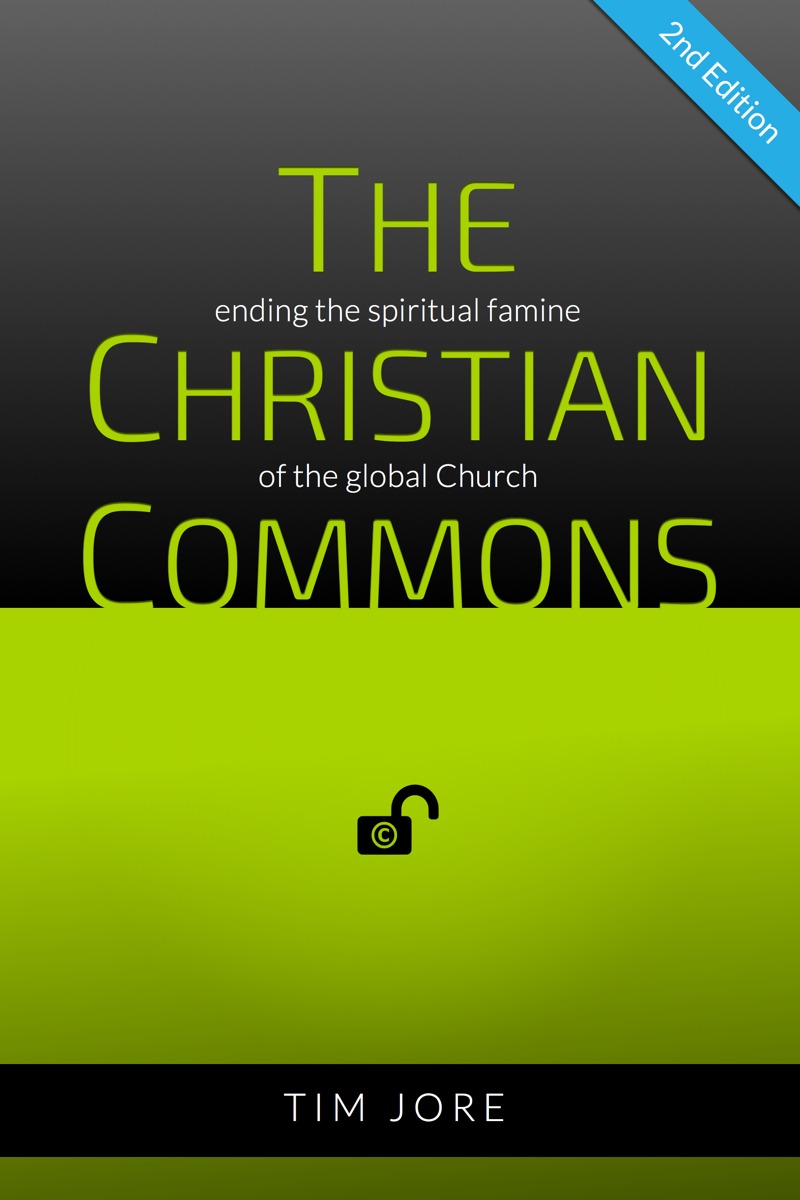

About the book
Only in the last 100 years has world missions been built on a foundation of “all rights reserved.” This model is both legal and ethical, but it has limited reach. The missions task is immense, and millions of people in thousands of people groups are still waiting to receive even one biblical resource in their own language.
There is another way to equip the global church for spiritual growth. Christians all over the world can use 21st century technology to openly collaborate in the creation of unrestricted biblical content in any language. These unrestricted biblical resources—the Christian Commons—can be legally translated, adapted, built on, revised, redistributed, and used, by anyone, without hindrance, today. Unrestricted biblical resources can reach more people, in less time, with less expense, more effectively.
Everyone who believed was of one heart and soul, and no one said that any of the things that belonged to him was his own, but they had everything in common… and there was not a needy person among them. —Acts 4:32,34
Read the book
The updated second edition (2015) of The Christian Commons is available for download (version 2.0.2):
Sharing and use
The Christian Commons is made available under a Creative Commons Attribution-ShareAlike 4.0 License. This means you are free to download, share with others, and create other works from this book, provided that you attribute thechristiancommons.com as the original content and release what you create from it under the same license.
Related Works
The following resources have been written since the publishing of The Christian Commons and focus on strategies and tactics for implementing the vision at a global scale:
The Gateway Languages Strategy
The objective of the Gateway Languages Strategy is to equip the global Church with the content, tools and training materials needed for translation of the Bible and creation of culturally-relevant, theologically-sound biblical resources in every language needed by the global Church. It does so by providing these resources in English under open licenses and then collaborating with Church networks worldwide to translate them into the ~50 Languages of Wider Communication that cover 100% of the global Church through patterns of multilingualism (the Gateway Languages). In this way, every element of the Church in each people group is provided with essential biblical resources in a language they understand and that they have the legal freedom to use for Bible translation and creation of other biblical resources in their own languages.
Download the whitepaper (revision 2) here:
Trustworthy and Trusted
Trustworthy and Trusted describes the difference between the trustworthiness of a Bible translation and the trust that the element of the global church that speaks the language has in it. It examines the means by which trust can be established, as well as the two key milestones through which every translation goes to arrive at trustworthiness. It considers historical precedents and suggests that while excellence must always be the goal, ongoing revision of Bible translations is to be expected, not avoided. It then describes the various means by which the church determines the trustworthiness of a Bible translation and considers how a systematic and comprehensive checking model could both improve the faithfulness of a translation and accelerate the process of achieving it. Finally, it proposes collaboration in the provision of resources and tools that implement the model.
Download the whitepaper (revision 1) here:
From Unreached to Established
From Unreached to Established describes the current reality regarding Bible translation by contrasting two different paradigms. The dominant paradigm of Bible translation in recent decades has been focused on the delivery of a quality product. The paper argues that this “Bible-centric” paradigm is becoming misaligned with the needs of the rapidly growing global church and is also facing a crisis due to lack of personnel to fill key quality assurance roles. The emerging “church-centric” paradigm integrates Bible translation into the process of establishing strong churches, providing improved scalability and alignment with the global church’s needs. This paradigm is shown to be facing its own crisis, due to lack of accessible resources. The paper concludes by showing how Bible agencies can help resolve this crisis by collaboratively creating these resources and training the trainers of the global church, but that doing so will require a transition from the objectives and metrics of the product-oriented, Bible-centric paradigm to the capacity-building, church-centric paradigm.
Download the whitepaper (revision 1) here:
Church-Centric Bible Translation: A Visual Overview
Church-Centric Bible Translation: A Visual Overview describes how Bible translation is changing, particularly from the perspectives of ecclesiology, missiology, technology, and intellectual property rights.
“The Christian Commons (ver 2.0)” is a revision of “The Christian Commons” (published by Distant Shores Media and made available under a Creative Commons Attribution-ShareAlike 3.0 license), revised by Tim Jore made available under a Creative Commons Attribution-ShareAlike 4.0 International license.
